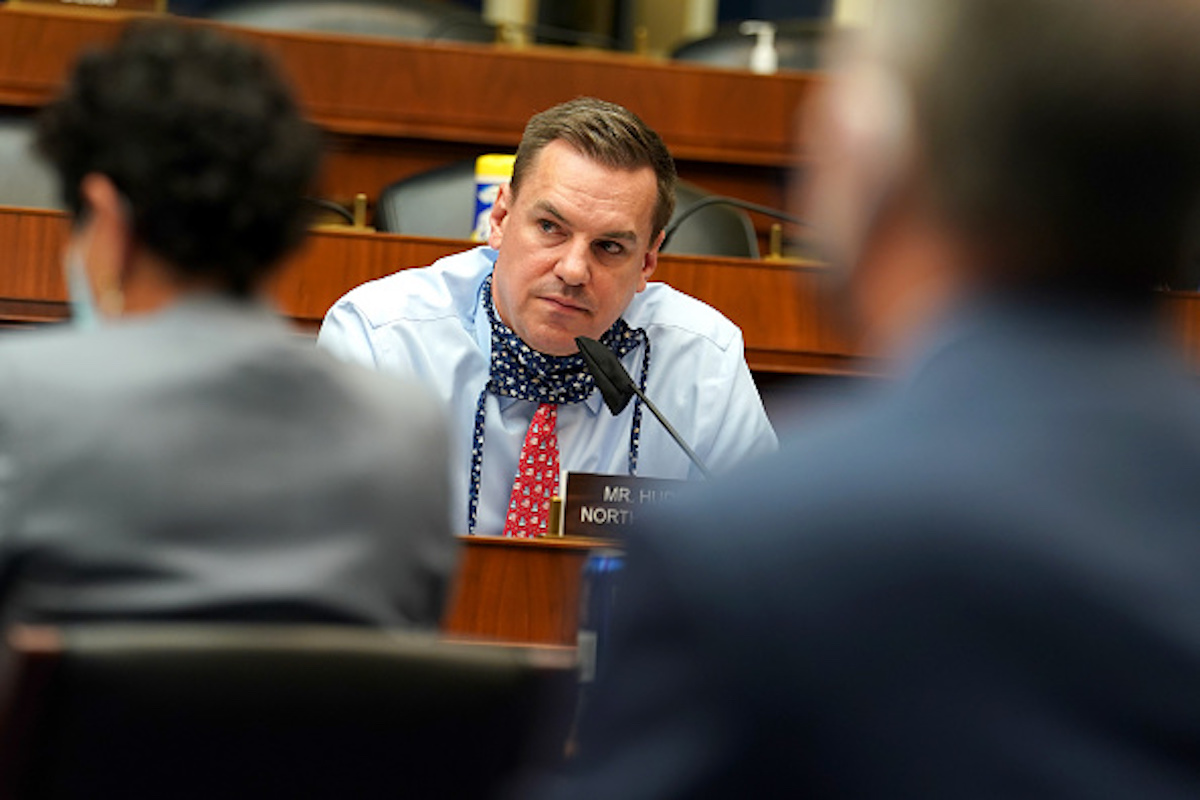A group of Republicans in the House of Representatives will introduce a $47 billion coronavirus relief bill Friday morning. There have been months of stalled negotiations between Republicans and Democrats on a stimulus package.
The bill, titled the Commitment to Defeat the Virus and Keep America Healthy Act, was first obtained by the Daily Caller and is said to be introduced around 10 a.m. (EST) Friday morning. Of the $47 billion, $31 billion would go to vaccines, therapeutics, diagnostics, surge capacity, and telehealth. The remaining $16 billion would go to additional testing and tracing.
The legislation will be introduced by Republican North Carolina Rep. Richard Hudson. The original cosponsors will be House Minority Leader Kevin McCarthy, Republican Texas Rep. Kevin Brady, Republican Oregon Rep. Greg Walden and Republican Texas Rep. Kay Granger.
“Last month, the Trump Administration updated the public on the progress of developing a safe and effective vaccine. They announced a fourth vaccine candidate had entered the crucial Phase III trials, just eight months after the virus was identified,” McCarthy said in a statement to the Daily Caller. “This was the latest reminder that the Trump Administration’s coordinated national effort, the largest since World War II, has yielded historic results against the greatest public health and economic crisis of our lifetime.”
“House Republicans continue to support their efforts. Consistent with our Commitment to America, today we are introducing the Commitment to Defeat the Virus and Enhance Pandemic Preparedness Act,” McCarthy continued.
Here are some issues addressed in the bill:
- Additional funding for vaccine and therapeutic development and distribution.
- Building on the Operation Warp Speed effort.
- Additional funding for testing and contact tracing.
- Expansion of telehealth services.
- Modernizing the stockpile.
- Incentives for domestic manufacturing of medicines and medical devices.
- Address COVID-19 health disparities.
- Address the impacts of COVID-19 on mental health and substance use disorder.
- Expansion of Health Savings Accounts.
READ THE TEXT OF THE BILL HERE:
OBTAINED: Commitment to Def… by Henry Rodgers

Rep. Richard Hudson (R-N.C.) asks questions to Dr. Richard Bright, former director of the Biomedical Advanced Research and Development Authority, during a House Energy and Commerce Subcommittee on Health hearing to discuss protecting scientific integrity in response to the coronavirus outbreak on Thursday, May 14, 2020. in Washington, DC. (Photo by Greg Nash-Pool/Getty Images)
“I’m honored to lead this effort to pass targeted solutions to combat COVID-19 and prepare for future pandemics. This bill makes important reforms to our telehealth and mental health services,” Hudson told the Daily Caller. “These vital improvements will help our seniors and those stuck at home. It also builds on our efforts to strengthen the Strategic National Stockpile, our testing systems, and our drug supply.”
“With this legislation we can fulfill our commitment to America and defeat COVID-19,” Hudson continued. “I thank Leader McCarthy and Ranking Members Walden, Brady and Granger for their partnership on this critical legislation.”
Democrats in the Senate voted to block the passage of a coronavirus stimulus package Oct. 21. The vote was 51-44 and the measure needed 60 votes to pass. It was a party-line vote. That $500 billion bill included a federal unemployment benefit, Paycheck Protection Program (PPP) funding and additional money for more coronavirus testing. (RELATED: Senate Democrats Block Republican’s COVID-19 Relief Bill)
President Donald Trump said Monday that a coronavirus stimulus package will happen after the Nov. 3 elections, heavily criticizing Speaker of the House Nancy Pelosi for not agreeing with the White House’s proposal. (RELATED: Trump Says Stimulus Package Will Happen ‘After The Election’)


